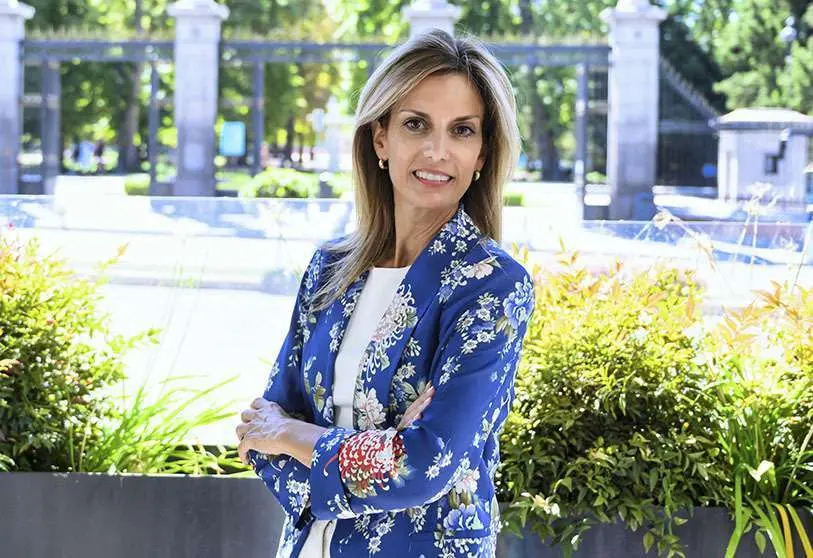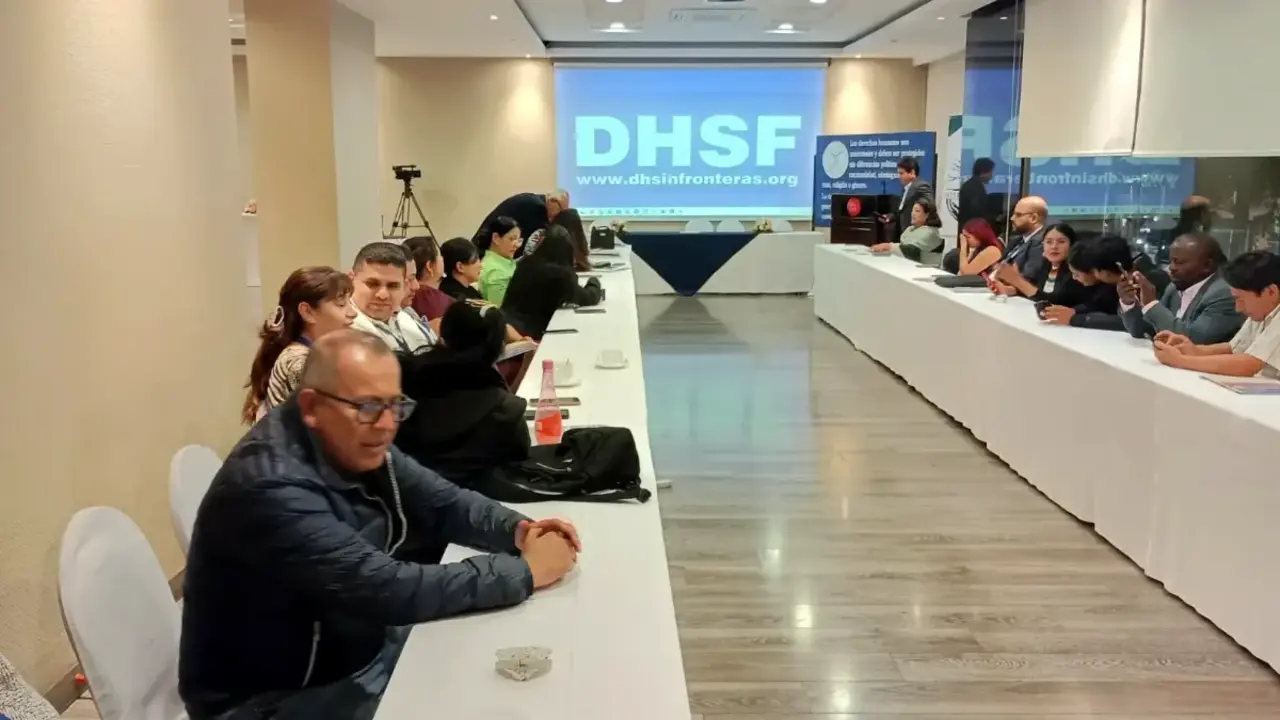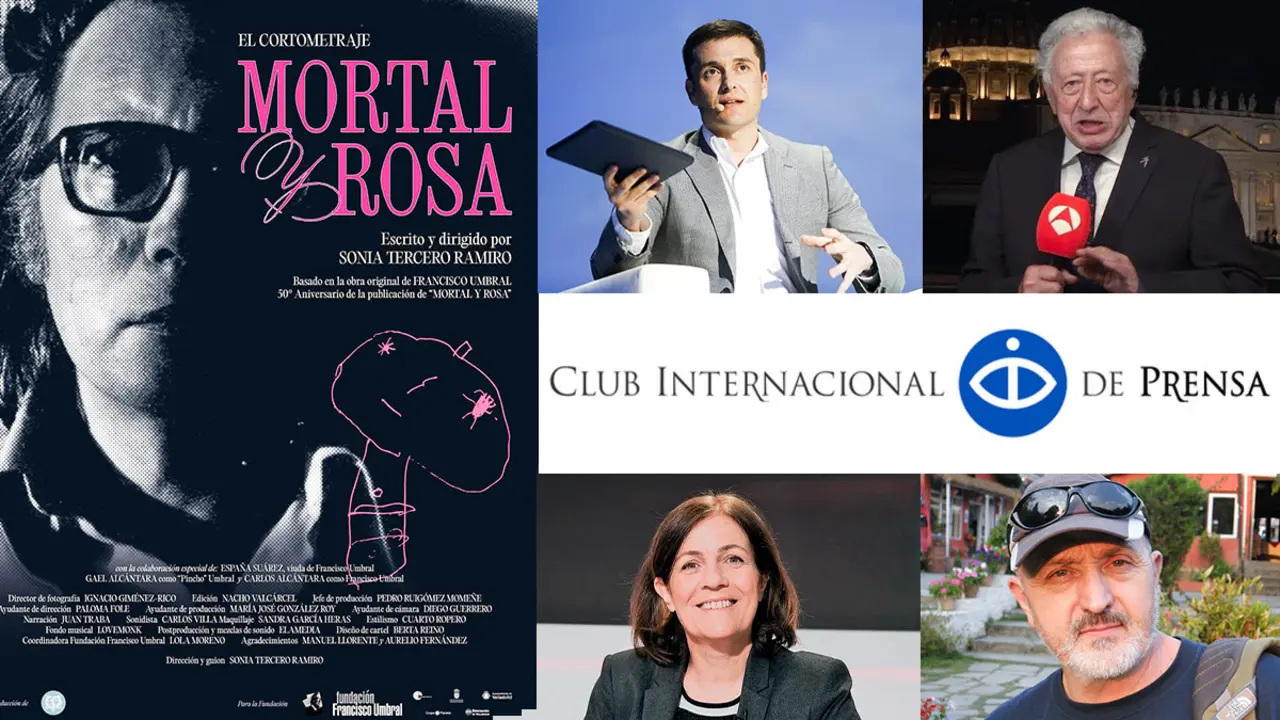Allende Martín: "Women are playing an increasingly important role in political communication"

Allende Martín has specialised in political communication. She has founded his own consultancy firm, CompoLider, and for the last 10 years has held political communication meetings with such outstanding leaders of this country as Antonio Garrigues Walker, politicians such as Begoña Villacís, Pablo Casado, Alberto Sotillos and journalists and analysts of the stature of Enric Juliana and Fernando Lázaro. She has also been awarded the Napolitan Awards, which are given to the most outstanding political communicators.
What did it mean to be awarded as an influential woman of the year at the Napolitan Awards? What is your assessment of your professional career up to the awards?
It is an immense joy and honour to be awarded this prize, which is named after Joseph Napolitan, the father of political communication consultancy worldwide. Napolitan, throughout his career, advised more than 100 politicians, including the Kennedys. The Napolitan Awards recognise the professionalism of political communication consultants and advisors.
This award is the symbol and recognition of all the work carried out over more than fifteen years and especially in this last year in CompoLider.
What is CompoLider?
CompoLider is a platform for analysts and professionals from the world of communication, politics and leadership, to promote and give visibility to political communication. In CompoLider we meet and analyse the current situation through debates with leading figures from politics, the business sector and leadership. And the CompoLider Magazine includes content from highly relevant professionals from these sectors and also with training in public speaking, discourse and leadership.
Are women gaining prominence in political communication or is it still a man's world? What female references would you highlight?
Yes, there is an increasing number of women in the sector, both in communication advice at a business and institutional level, and from political parties and training and election campaigns. It is essential that we reach that parity. The fact that we received the award for influential woman of the year contributes the grain of sand to make women visible in this profession.
We have great references in political communication such as the president of the Latin American Association of Political Consultants (ALACOP), Marilú Brajer, and the president of ACOP in Spain. There are many women consultants in Spain and Latin America, and we are all giving visibility and making room for ourselves in political consultancy.
What are the major failures you believe our political leaders have in communication? What impact does it have on our day-to-day lives?
Politicians need to be close and empathetic. They must be compassionate, as a leading consultant from Mexico, Roy Campos, has said. And I think so. We are facing a great crisis, that of the COVID, in which we have seen how some leaderships have been strengthened, but others have been weakened. New leaderships have also appeared. Those who have been close have planned and managed the crisis and, above all, have taken the lead for and on behalf of citizens.
Failures in communication, especially in this pandemic, affect the leader's credibility and trust with citizens. There is a great deal of polarisation and disaffection on the part of citizens with politicians and leaders. It is very important, now more than ever, that closeness, transparency and empathy be shown.
What are the challenges of political communication in this pandemic? What is the importance of political communication in times of a coronavirus?
Information and transparency. That citizens feel safe and supported and that the information they receive is correct. You should note that there is unity on the part of the politicians in order to move forward. This enhances democracy even more. In this pandemic, as a health, social and economic crisis, the challenge will be to be close to communicating in a transparent manner at all times.
How have social networks transformed the way politics are communicated?
The emergence of social networks has transformed general communication and politics. It is very positive, now anyone can make a statement. It is a two-way communication. There is more proximity and transparency in accessing and having digital information.
The citizen and the politician can make direct contact and both politicians and parties use tools such as digital listening, nanosegmentation, or artificial intelligence, and digital campaigns will be done in another way to reach younger audiences. The world has changed the way we communicate and work, as we have done in recent months. We have seen digital press conferences, speeches by the leaders on platforms that have replaced face-to-face ones and the use of masks for safety. We are going to combine traditional and digital communication, although the latter has gained more weight.
Which political leaders in the international arena are an example to follow and why?
Undoubtedly, the greatest reference today is Ángela Merkel. She has demonstrated a forcefulness in decision making. She has been transparent from the outset, stating that 60-70% of the population would contract the virus. She has been constantly providing truthful information and security and the citizens themselves have responded by giving her 75% approval. It has proved to be the leader par excellence.
Other leaders, great leaders, such as the prime ministers of New Zealand, Jacinda Arden, and Taiwan, have managed the crisis by taking the lead in decision-making. Other leaders, such as those of Sweden and Denmark, have also followed this path. The role of women politicians has been decisive in this pandemic. They have been up to the task of managing the crisis, unlike other leaders such as Donald Trump or Jair Bolsonaro, who have minimised the seriousness of the situation in this health crisis and even, until very recently, have directly harmed citizens by not setting an example; and this translates into a loss of "credibility".

Another leader who has been strengthened by his management of this pandemic at international level is Andrew Cuomo, governor of New York. He has been at the forefront of the crisis from the outset, making decisions and providing information. He has acted to ensure the safety of his citizens. He has reached agreements with other governors because he knew that what happened in New York would spread to the rest of the territory.
In Spain, I would highlight the Mayor of Madrid, José Luis Martínez Almeida, who was praised by other political groups, and Margarita Robles, in decision-making and communication regarding her action at the beginning of the pandemic, transmitting security through the action of UME and the State Security Forces and Corps. As a leader, she has great qualities.
This pandemic has exposed our politicians and there is only leadership with truth, consensus, close action and, above all, empathy.
What is your assessment of the figure of Kamala Harris in the run-up to the US elections on November 3?
She will be the counterweight to Donald Trump. She is a good match for the leadership of the Democratic Party's presidential candidate, Joe Biden. She is combative. She has a great background and professional career, although she does not have all the experience of Joe Biden, who has been in politics for over forty years. She is a great asset as a woman, an African American, and as a politician she has a great oratory and a great speech. I think she can play a very good role. We will be looking forward to it.








